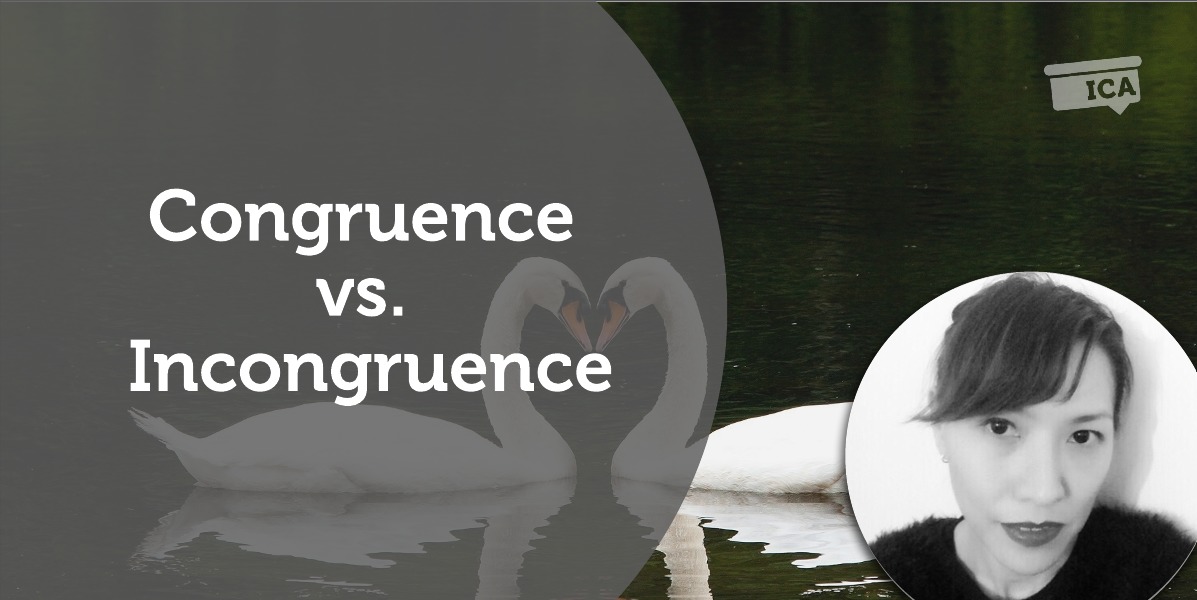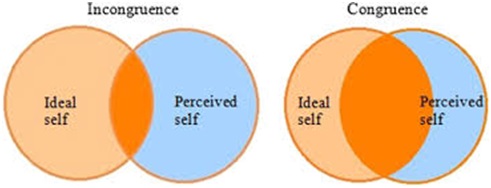 A Coaching Power Tool Created by Phoebe Charn
A Coaching Power Tool Created by Phoebe Charn
(Life Coach, FRANCE)
 Introduction
Introduction
The term self-concept refers to how someone thinks about or perceives themselves. To be aware of oneself is to have a concept of oneself. One definition of self-concept is: “the individual’s belief about himself or herself, including the person’s attributes and who and what the self is.”
Self-concept encompasses three things:
According to Rogers (1959), human want to feel, experience and behave in ways which are consistent with our perceived self and reflect what we would like to be like, our ideal-self. The closer our perceived self and ideal-self are to each other, the more consistent we are and the higher our sense of self-worth.
Most of the time, human beings lack harmony when there is a conflict between their perceived self and their ideal self. I am using this concept of Carl Rogers to incorporate as the power tool for coaching.
Congruence vs Incongruence
Congruence is the matching of experience and awareness. This means is a fairly accurate match between self-concept and reality.
Incongruence has feelings not aligned with actions. It is the discrepancy between self-concept and reality.
Humans beings are intentional, aim at goals, are aware that they cause future events and seek meaning, value, and creativity. People desire to better themselves.
In a day to day context, congruence means what a person display outwardly—words, actions, body language, etc.—matches what is on the inside—thoughts, feelings, body sensations, etc. When what is on the outside does not correspond with what is on the inside, one is incongruent. A simple example would be when someone asks, “How are you?” and you muster your best plastic smile and reply “Good.” However, you are having a crappy day and feel like hiding in a hole.
Almost everyone fluctuates in his or her level of congruence. There are situations we regularly encounter where it may not be wise or entirely helpful to be congruent. In other words, to share how we are thinking and feeling. Therefore we are not acting according to what we like ourselves to be acting according to our thinking.
We all have a persona, a self that we present to the world, the existence. If we continuously drift into a state of incongruence where we believe we are our persona and lose track of who we are on the inside, our real self. When this occurs, we start to lose the ability to choose what we express. We end up living in a shallower existence in something like autopilot.
Rogers believed that because incongruence ultimately makes one feels bad. And that all human beings have an innate drive to become more congruent, even if in their childhood, congruence was not supported, or even safe. In Rogers’ view congruence is a big part of what he called self-actualisation, the height of healthy human development. He believed that when the real self, the perceived self, and the ideal self are all in alignment, which is the authentic self, we experience a great sense of peace and clarity.
Self-Application
There are two ways of being congruent in life. The first is to understand who we are and know our values. The second is to live our day to day life congruent to our thoughts, feelings and behaviour.
The process of self-discovery is never-ending. Values are the rules and guidelines to live your life. You may have an idea of what you value, but often there is not much clarity behind it.
Taking some time to explore yourself is an excellent way to start.
Some ideas are:
- Keep an inspirational journal
Write whatever inspires you. It is a good way to spend time with yourself and has more understanding of yourself.
- Know your values
It is a great exercise to discover and uncover your values. Once you know what your values are, you can prioritise them. Decisions become easy when you know your values, and without realising it, you will subconsciously start to act more in line with them.
One way of discovering your value is taking an assessment with Barrett values centre.
- Walk the talk
Once you have a sense of un understanding of yourself and your values, you can set an intention every day to live day by day congruent to your thoughts and action.
Self- reflection Questions:
Coaching Application
The general definition of congruence is in agreement or harmony. When a person lives with congruency, he or she acts in direct accordance with their values, passion, beliefs, goals and purpose. They will not let other people’s thoughts affect their approach to life.
Knowing your values, yet not acting and living according to them, is a form of incongruence.
Having a harmonious life can be challenging for clients. Life congruence starts with uncovering one’s values and beliefs, then living out those values.
The client may be living in any of the following states when:
In a coaching session, the coach explores what are the belief or core values the client is holding. With the understanding of the client’s value, the coach can listen for client’s discrepancy in their words that differs from their action to shine a light on them.
The essential for the client is to understand what is getting in the way of their incongruence.
Some questions from the coach to be curious of:
Sometimes client fears being their authentic self, incongruence by denial is the defence mechanism to reduce their anxiety.
For the client to be congruent, three attributes to create a growth-promoting climate to help the client to move forward and become capable of becoming their true self are:
- non-judgemental
- acceptance and care
- empathy
The coach has to create a safe environment for the client to let them fully express themselves. The coach has to bear in mind to listen to the client without being judgemental but to accept a client as who they are and have empathy towards them.
To support the client to uncover his/her values, some questions towards discovery are:
When the coach has an understanding of the client’s core values, it will be clearer to see where the gap is and enable the coach to convey his/her observation to the client.
Some questions to help the client to move forward:
Reflection:
- How can the coach support the client to live congruently?
- How can the coach support client to navigate from incongruency?
- How can the coach challenge the client’s perspective without causing anxiety for the client?
- What are some types of exercises that could support them in discovering their values?
References:
https://www.dmcounselling.ie/carl-rogers/
http://leadingyourlife.com/newsletters/04.htm
http://practicewisdom.blogspot.com/2013/06/self-concept-self-image-ideal-self-and.html
https://psychology1232011.weebly.com/24-congruence-and-incongruence.html#
https://liveyourlegend.net/the-beginners-guide-to-being-congruent/